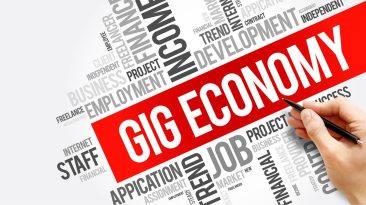In recent years, the gig economy has grown rapidly, with millions of people around the world now working as independent contractors or freelancers. While this new way of working offers flexibility and autonomy, it also has significant implications for the future of work and employment.
The gig economy is characterized by short-term, project-based work that is often facilitated by technology platforms like Uber, Airbnb, and Upwork. Workers in the gig economy are typically not classified as employees and therefore do not receive the benefits and protections that come with traditional employment, such as healthcare, retirement plans, and job security.
One of the biggest impacts of the gig economy is that it is changing the nature of work itself. With more people working as independent contractors or freelancers, traditional employment models are becoming less common. This trend is especially pronounced among younger workers, who are increasingly seeking flexible work arrangements that allow them to balance work with other priorities, such as family and personal interests.
Another impact of the gig economy is that it is creating new opportunities for entrepreneurship and innovation. With the rise of platforms like Etsy, Fiverr, and TaskRabbit, individuals can now start their own businesses and offer their services to a global audience. This has led to a democratization of entrepreneurship, where anyone with a skill or idea can start their own business without needing access to traditional capital or resources.
However, the gig economy also has some negative impacts. For example, many gig workers are paid low wages and lack basic protections such as healthcare and retirement benefits. This can make it difficult for them to make ends meet, and they may struggle to save for the future or handle unexpected expenses.
Another concern is that the gig economy may contribute to the erosion of worker rights and protections. As more people work as independent contractors, there is less pressure on employers to provide benefits and protections to their workers. This could lead to a race to the bottom, where workers are forced to compete with each other for jobs and employers can cut costs by paying lower wages and providing fewer benefits.
In conclusion, the gig economy is having a significant impact on the future of work and employment. While it offers flexibility and new opportunities for entrepreneurship, it also raises concerns about worker rights and protections. As this new way of working continues to evolve, it will be important to find ways to ensure that gig workers are able to earn a fair wage and have access to basic benefits and protections. Only then can we truly harness the potential of the gig economy to create a more inclusive and sustainable future of work.
